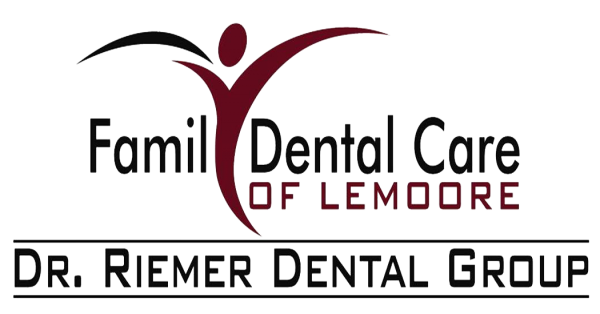Tooth Extractions
Tooth extraction is a dental procedure that removes a tooth from its socket in the jawbone. This procedure may be necessary for various reasons, including severe decay, advanced gum disease, dental trauma, overcrowding, or impacted wisdom teeth. While tooth extraction is typically considered a last resort, it is essential in cases where the tooth cannot be saved or poses a risk to oral health and overall well-being.
Tooth extraction helps alleviate pain, prevent the spread of infection, preserve oral health, and create space for orthodontic treatment or dental prosthetics. Additionally, extracting problematic teeth can prevent complications and promote the overall health and function of the mouth. Proper post-extraction care and follow-up with the dentist in Lemoore, CA, are essential to ensure optimal healing and minimize discomfort.
Reasons for Tooth Extractions
Severe Tooth Decay
One of the most prevalent reasons for tooth extraction in Lemoore, CA, is severe tooth decay. When decay penetrates deep into the tooth structure, compromising its integrity and causing irreversible damage, extraction may be the only viable option to prevent the spread of infection. In cases where the decay is extensive and cannot be effectively treated with fillings or root canal therapy, extraction becomes necessary to preserve the health of the surrounding teeth and tissues.
Advanced Gum Disease
Advanced gum disease, also known as periodontitis, can damage the teeth's supporting structures, including the gums, periodontal ligaments, and alveolar bone. As the disease progresses, teeth may become loose and unstable, posing a risk to oral health and function. In severe cases where gum disease has caused irreversible damage to the supporting tissues, extraction may be recommended to prevent further complications and preserve oral health.
Dental Trauma
Dental trauma, such as fractures, cracks, or avulsion (complete displacement) of a tooth, may necessitate extraction if the damage is extensive and irreparable. Traumatic injuries to the teeth can compromise their structural integrity and increase the risk of infection and other complications. In cases where the tooth cannot be saved through restorative procedures such as bonding, crowns, or root canal therapy, extraction may be the best action to prevent further damage and restore oral health.
Impacted Wisdom Teeth
Wisdom teeth, or third molars, often erupt during late adolescence or early adulthood and may become impacted due to lack of space or improper positioning. Impacted wisdom teeth can cause various problems, including pain, swelling, infection, and damage to neighboring teeth. In such cases, extraction may be recommended to alleviate discomfort, prevent complications, and preserve overall oral health.
Orthodontic Treatment
In some cases of severe crowding or misalignment, tooth extraction may be recommended as part of orthodontic treatment to create space and achieve proper teeth alignment. By strategically removing one or more teeth, orthodontists can facilitate tooth movement and improve the alignment of the bite, ultimately enhancing oral function and aesthetics. Contact us today!
The Tooth Extraction Procedure
While extraction is typically considered a last resort, it plays a vital role in preserving oral health, alleviating pain, and preventing further complications. Before the extraction procedure begins, our dentist at Dr. Riemer Dental Group will thoroughly examine the affected tooth and surrounding tissues. This may involve taking dental X-rays to assess the tooth's position, root structure, and potential complications. Based on the examination findings, your dentist will develop a treatment plan and discuss the procedure, including anesthesia options and post-extraction care instructions.
On the day of the extraction, your dentist will administer local anesthesia to numb the area around the tooth, ensuring a pain-free experience during the procedure. In some cases, sedation may also be used to help patients relax and feel more comfortable. Once the anesthesia has taken effect, the dentist will use specialized instruments, such as forceps or elevators, to gently loosen the tooth from its socket in the jawbone. Depending on the tooth's condition and position, the dentist may need to perform a simple or surgical extraction, which involves making an incision in the gum tissue to access the tooth and remove it.
Aftercare Tips for Optimal Healing
- Take prescribed medications as directed, including pain relievers and antibiotics if prescribed.
- Apply ice packs to the affected area to reduce swelling and discomfort.
- Avoid vigorous rinsing or spitting for the first 24 hours to prevent dislodging the blood clot that forms in the extraction socket.
- Stick to soft foods and liquids for the first few days, gradually reintroducing solid foods as tolerated.
- Maintain good oral hygiene by gently brushing and flossing the remaining teeth, avoiding the extraction site.
- Attend follow-up appointments with your dentist to monitor healing and address any concerns.
Tooth extraction is a standard dental procedure to address oral health issues and alleviate pain and discomfort. If you have a tooth that may require extraction, visit Dr. Riemer Dental Group at 446 C St, Lemoore, CA 93245, or call (559) 924-2520 to explore your treatment options and ensure the best possible outcome for your oral health.
